| "This moment is just so insane," -- St. Paul Mayor Melvin Carter on the volatile environment across the U.S.
Welcome to the "Face the Nation" Five at Five newsletter. Scroll down for your five takeaways from today's broadcast with moderator Margaret Brennan on CBS. Did someone forward you this? Sign-up at cbsnews.com/email. 1. Schiff says no way to Trump access to future intel briefings 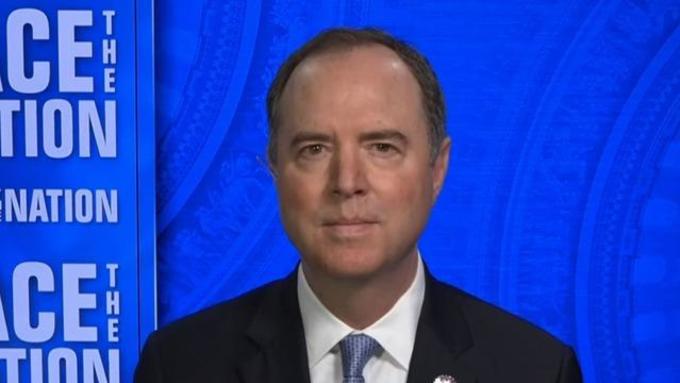 Congressman Adam Schiff, the chairman of the House Intelligence Committee, said Sunday he doesn't believe President Trump should receive intelligence briefings after he leaves office, as he "can't be trusted" with the nation's secrets. What we asked: When he leaves office, he should be denied access to intelligence briefings. Would you urge the Biden administration to do that? What Schiff said: "Absolutely. There's no circumstance in which this president should get another intelligence briefing, not now, not in the future. I don't think he can be trusted with it now and in the future, he certainly can't be trusted. Indeed, there were, I think, any number of intelligence partners of ours around the world who probably started withholding information from us because they didn't trust the president would- would safeguard that information and protect their sources and methods. And that makes us less safe. We've seen this president politicize intelligence, and that's another risk to the country." Why it matters: Schiff's concerns about whether the president should continue to have access to intelligence come after Sue Gordon, the former principal deputy director of national intelligence from 2017 to 2019, said in a Washington Post op-ed that Mr. Trump should not receive intelligence briefings after January 20, as he poses a "potential national security risk" as a private citizen. "[I]t is not clear that he understands the tradecraft to which he has been exposed, the reasons the knowledge he has acquired must be protected from disclosure, or the intentions and capabilities of adversaries and competitors who will use any means to advance their interests at the expense of ours," Gordon wrote. Schiff noted that in the course of his presidency, Mr. Trump has politicized intelligence, which is "another risk to the country." 2. Incoming CDC head projects half a million deaths next month 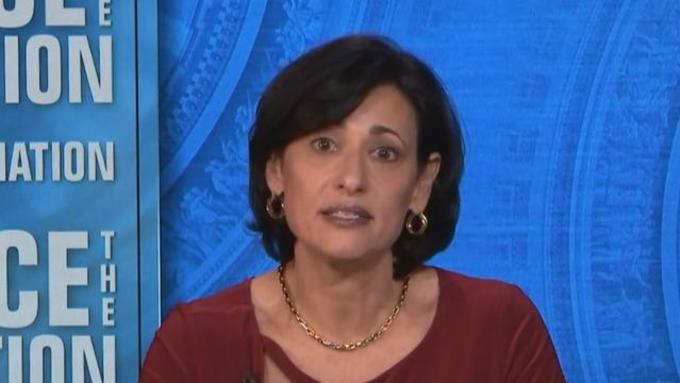 President-elect Joe Biden's pick to lead the Centers for Disease Control and Prevention (CDC) Dr. Rochelle Walensky forecasted the U.S. will go through some dark weeks ahead as the death toll continues to mount due to the coronavirus pandemic. What we asked: Do you agree with his forecast that it's going to get worse? What Walensky said : "Unfortunately, I do, I think that, you know, we've- we've, as you noted, nearly 4,000 deaths a day, almost 400,000 deaths total. By the middle of February, we expect half a million deaths in this country. That doesn't speak to the tens of thousands of people who are living with a yet uncharacterized syndrome after they've been recovered- after they've recovered. And we still yet haven't seen the ramifications of what happened from the holiday travel, from holiday gathering in terms of high rates of hospitalizations and the deaths thereafter. So, yes, I- I think we still have some dark weeks ahead." Why it matters: Dr. Walesnky's grim prediction comes as a new strain of the deadly virus from the UK appears more transmissible, and as Walensky says, it likely won't "evade our vaccines," but is concerned that future strains might have resistance to some of the antibody treatments currently available. 3. West Virginia's Justice calls state a "diamond in the rough" for COVID vaccine rollout 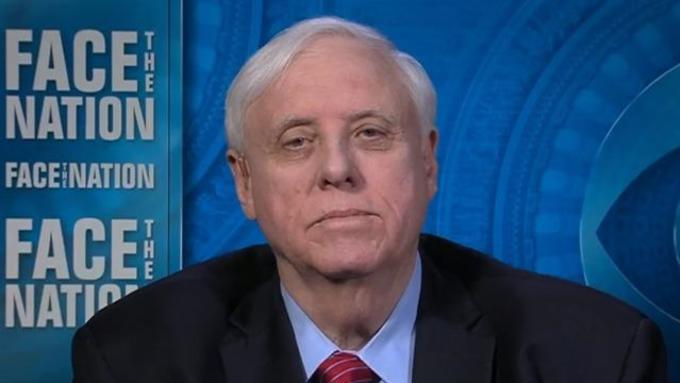 As states work to accelerate the pace of administering coronavirus vaccines and improve the rocky rollout of the shots, West Virginia Governor Jim Justice praised his state for its successful vaccine distribution, calling it the "diamond in the rough." What we asked: "Your ability to distribute almost 70% of the vaccine doses that you have received from the federal government. You've used the National Guard to do it, something Joe Biden wants other states to consider doing. What can they do that your general workforce cannot? What Justice said: "For the last week or so, we've been running not at 70% , we're running it right at 100%. Right now, we're at 98.1%, as far as vaccines in people's arms or names tied to it, you know, that are going to be put into people's arms immediately. We're saving all kinds of lives. We're putting our- our kids back in school. West Virginia has been the diamond in the rough that a lot of people have missed. You know, we're first in the nation on being able to test all the people in our nursing homes and on and on and on. Absolutely. That's why we're leading the nation, because we are practical thinking people--with a lot of really smart people here that are getting it done." Why it matters: Since coronavirus vaccines developed by Pfizer and Moderna were first shipped out to states in December, West Virginia has emerged as a leader in vaccine distribution. According to data from the Centers for Disease Control and Prevention (CDC), more than 205,000 doses of the shots have been distributed and more than 134,000 doses have been administered in the state. 4. Gottlieb expects new virus variant to dominate U.S. infections in 5 weeks 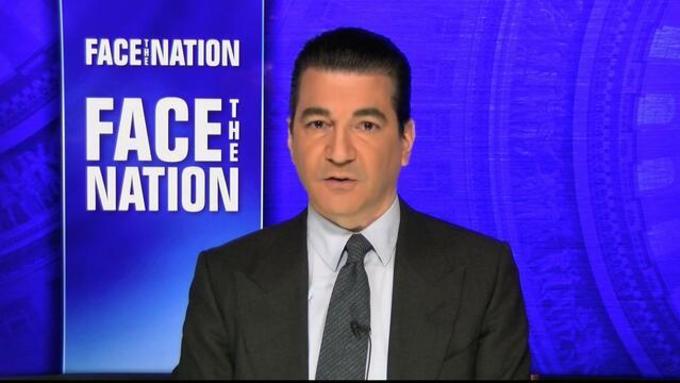 Former Food and Drug Administration Commissioner Dr. Scott Gottlieb predicted Sunday that the new variant of the coronavirus discovered in the United Kingdom will be the dominant strain in the U.S. in a matter of weeks. What we asked: You just heard the incoming CDC director say 500,000 deaths by mid-February, that this will get worse. Do you agree? What Gottlieb said: "We'll see continued declines probably for about four weeks, maybe five weeks until this new variant starts to take over. Right now, this new variant is about 0.5% of all infections nationally. There's hotspots in Southern California and Florida that may be closer to 1%, but it's going to double every week. So it's about doubling every week. That's the experience from other countries and that's the experience we've seen so far in the United States. So it's 1% now. It'll be 2%, then 4%, then 8%, then 16%, then 32%. So in about five weeks, this is going to start to take over. The only backstop against this new variant is the fact that we will have a lot of infection by then. So there'll be a lot of immunity in the population and we will be vaccinating more people. But this really changes the equation. And I think what we're looking at is a relentless strike from this virus heading into the spring, whereas infections really would have started to decline in the spring. We would have had a quiet spring. We could have persistently high levels of infection in the spring until we finally get enough people vaccinated." Why it matters: Known as B.1.1.7, the new strain was detected in the U.K. in December and has since spread to more than 30 countries and at least 10 states. The Centers for Disease Control and Prevention (CDC) said in a report Friday that the variant discovered in the U.K., which is believed to be more transmissible, will be the dominant strain by March. Another variant, known as B.1.351, has also emerged in South Africa. While B.1.351 has not yet been detected in the U.S., Gottlieb said "the bottom line is these strains are already here." 5. St. Paul Mayor says city on 'high alert' amid nationwide unrest 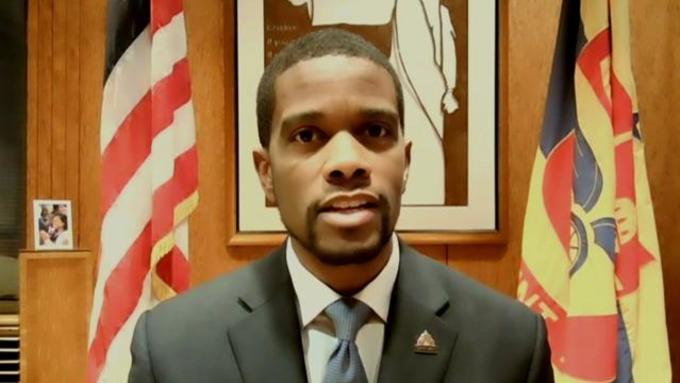 Amid heightened risk of another attack on state capitols nationwide, Saint Paul, Minnesota Mayor Melvin Carter, citing high volatility at the moment, says his city continues "to be on a state of high readiness because this moment is just so insane." What we asked: You run the Capitol. What exactly are you preparing for? What Carter said: "The FBI is now telling us they don't see any specific credible threats. But we know that we're in a volatile moment. We know that we have a president who has continued to egg on these extreme radicals to try to take action. And so we have worked very closely with our Minnesota National Guard, with our state patrol and our St. Paul police department to have hundreds of law enforcement personnel on duty, not just to protect our Capitol complex, but our Capitol complex is situated inside a set of diverse and multilingual neighborhoods that deserve that type protection as well." Why it matters: Mayor Carter's comments come amid threats of nationwide protests and violent riots, similar to the attacks on the U.S. Capitol, being raised by extremist groups. Carter noted as a result of the recent unrest, he hopes the country can "finally address the race issue we have in our country, that continues to impact our history of systemic racism and oppression." Subscribe to Facing Forward: A new "Face the Nation" podcast 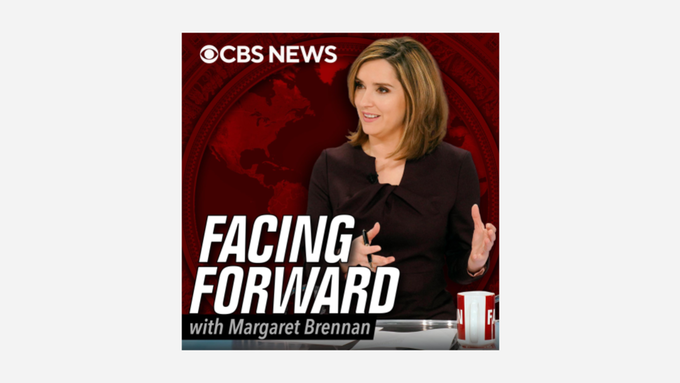 Viewers during today's show learned the news first: Face the Nation is now heading to a podcast near you. FACING FORWARD, a new podcast hosted by moderator Margaret Brennan, will feature weekly conversations about the tectonic shifts in our world and how they impact every American. The podcast will debut its first episode on Friday, January 22. Listen to a teaser trailer for Facing Forward here.
| 
No comments:
Post a Comment